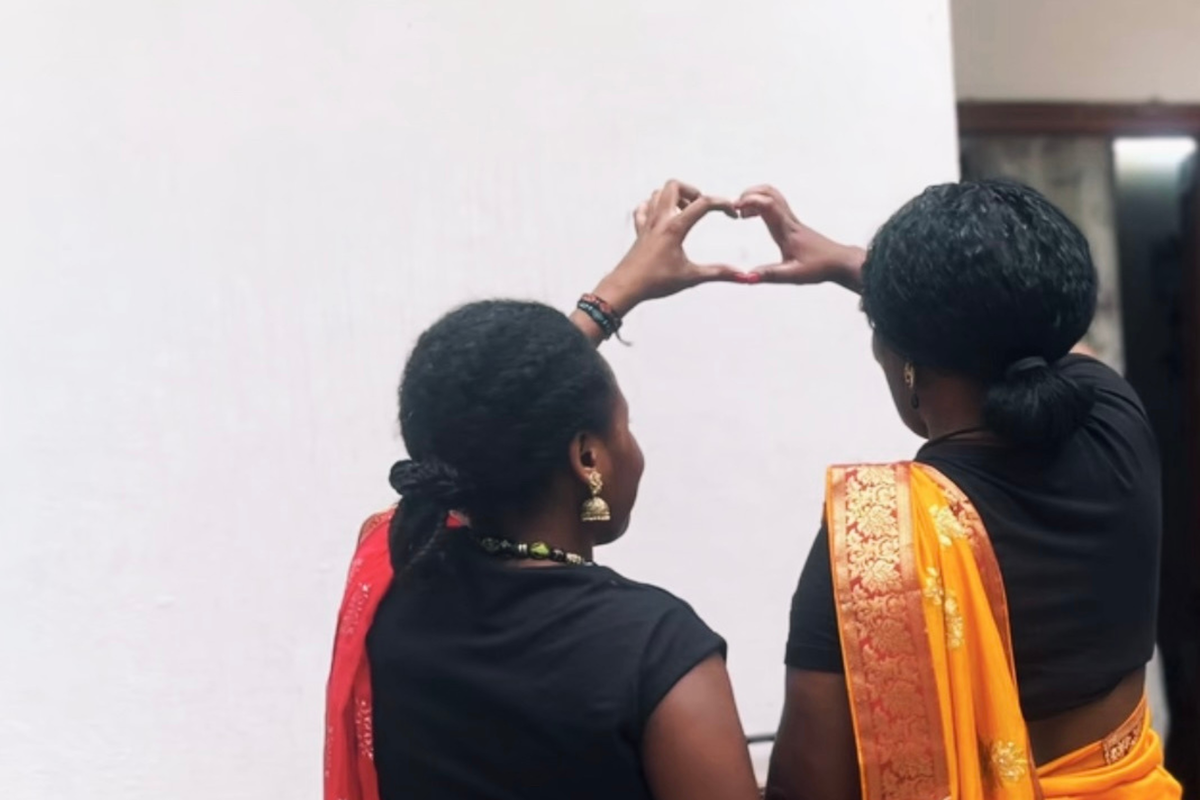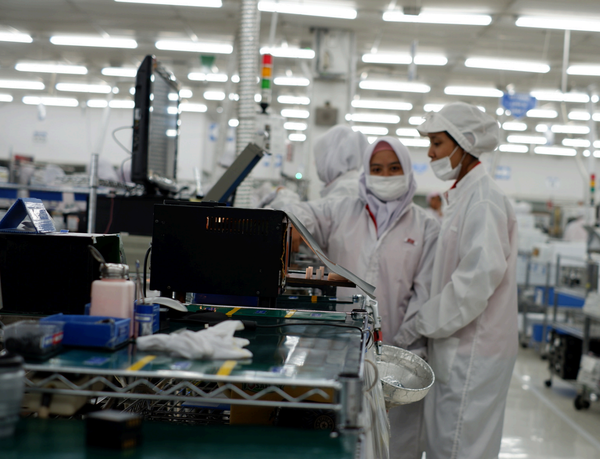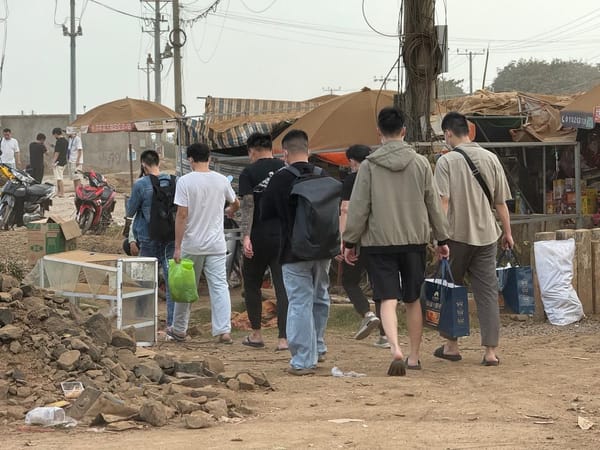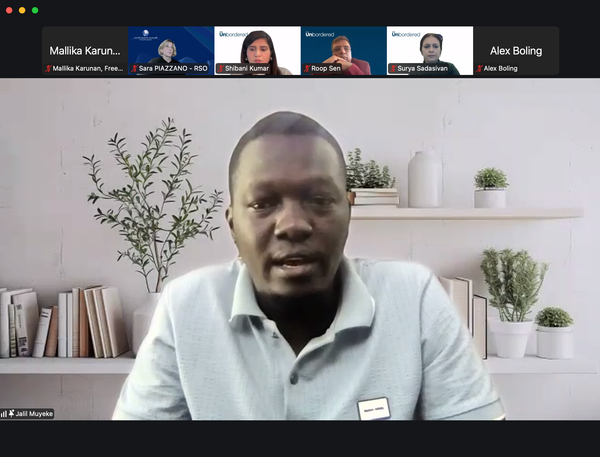EHAAT CSOs gain new insights into trafficking between East Africa and India
Frontline groups report increased human trafficking from East Africa to India, more than 100 organizations urge the restoration of ILAB grants, and the UK’s state-owned energy company will ban solar panels linked to slave labour.

Civil society organizations from the East and Horn of Africa Anti-Trafficking (EHAAT) Network took part in a regional call last week focusing on trafficking between the East and Horn of Africa and India. The discussion was based on findings by Indian anti-trafficking organization Red Rope, who led the call along with HAART Kenya, and included recent insights from their joint activities.
The trafficking of African women into India is on the rise, according to Red Rope, whose case studies show that women are often recruited directly from the streets while selling goods, lured with promises of jobs in India as salon workers, housemaids, or restaurant staff. In most cases, their travel documentation is arranged by traffickers using straightforward E-visas; however, upon arrival, their passports are confiscated and they are coerced into sexual exploitation under the pretext of “debts” ranging from US$1,000 to US$4,000, which the traffickers claim must be repaid. The women are groomed, tracked, and manipulated and, even after their “debt” is settled, many are left undocumented and stranded, often forced into street work for survival.
Africans in India face severe prejudice and are often compelled to live in slums or informal settlements without access to legal employment or social support, Red Rope reports. In major cities such as Mumbai, Delhi and Bangalore, African communities account for approximately 5 to 10 percent of the population. Most live in marginalized neighborhoods in cramped, unhygienic conditions and experience high levels of violence, including sexual assault, physical abuse, and humiliation.
While Red Rope believes that prevention is more effective than rescue or rehabilitation, its awareness programs have led to several successful rescues. In 2022, it was called upon to assist in a case involving two Uzbek women who had been trafficked into India via Nepal, eventually arriving in Delhi. Despite multiple rejections from potential partners, Red Rope, with the support of a lawyer, managed to repatriate the women after three months of intensive intervention. Shockingly, the trafficker was a legal official with a chamber at the High Court of India.
This case paved the way for further interventions involving Uzbek and, later, Ugandan women, prompting Red Rope to focus increasingly on African nationals trafficked into India, despite the deep-rooted racial prejudices that often complicated their efforts. Working alongside partners such as HAART Kenya, Willow International and The Salvation Army, the organization has to date repatriated 62 survivors from Uganda, Kenya, Tanzania, Rwanda, and Cameroon. It has also built relationships with the Kenyan and Ugandan High Commissions, securing financial and logistical support, and hopes to expand collaboration to more African embassies.
However, the group faces significant challenges. Each repatriation costs approximately US$1,500 while overstay fines sometimes delay the repatriation process. Limited financial resources, a lack of team capacity, and inconsistent documentation and embassy support further hinder its work. Additionally, survivors are often reluctant to discuss their past experiences, and many skill-building programs fail to align with their interests or abilities, focusing heavily on tailoring, baking and jewelry-making while overlooking useful skills such as communication, sales and digital literacy.
Red Rope has also identified broader systemic issues, including low school completion rates, high rates of teenage pregnancy, absent fathers and dysfunctional family structures, limited support for students transitioning from primary to secondary education, and difficulties in securing birth certificates for children born in India.
In response, Red Rope advocates for innovative and transformative solutions, including the creation of survivor-led businesses, training programs that match survivors’ talents with real economic opportunities, and sustainable business models that empower survivors. Ultimately, Red Rope asserts, this movement must be survivor-led – not only within organizations but also across business and leadership. Cross-regional collaboration is also key to effective action, and Red Rope plans to continue working with HAART Kenya and other partners in its efforts to prevent and eliminate human trafficking between continents.
EHAAT is a regional network of CSOs dedicated to combating human trafficking, forced labour, and exploitation across the East and Horn of Africa, with support from the Better Migration Management (BMM) Programme, funded by the European Union and Germany. Its members operate across countries including Djibouti, Ethiopia, Kenya, Somalia, South Sudan, Sudan and Uganda.
Here’s a round-up of other noteworthy news and initiatives:
A statement signed by more than 100 organizations urges the restoration of grant programs at the U.S. Department of Labor’s International Labor Affairs Bureau, saying they play a vital role in addressing forced labour, child labour, and human trafficking across the globe. The statement also notes that, instead of making the U.S. safer and more prosperous, the cuts undermine American workers and businesses by allowing unfair competition from goods produced with forced labour.
The European Union’s new Forced Labour Regulation will require companies to identify and eliminate forced labour in their operations and supply chains, say Human Rights Watch and the Cornell Global Labor Institute (GLI), on release of a new document providing in-depth analysis of the Regulation. The question-and-answer document explores its mechanisms, potential impact, and key challenges, as well as the expectations of stakeholders and the opportunities the Regulation presents.
The UK’s Energy Secretary will amend legislation to ensure there is no slavery or human trafficking in the supply chains of Britain’s state-owned energy company, GB Energy, meaning it will not be allowed to use solar panels linked to Chinese slave labour. China currently dominates the renewables market and up to 50 per cent of the world’s supply of polysilicon, a key component in solar panels, comes from the Xinjiang region.
And the UK’s High Court has found that the denial of legal aid to four women who had been trafficked to the UK breached their rights under the European Convention of Human Rights. The judgment is significant because it confirms that mental injury, trauma, language barriers and lack of support are all factors that mean the UK’s Criminal Injuries Compensation Authority scheme cannot be accessed without legal assistance, and so a refusal of legal aid might breach human rights law.
A new report by Free the Slaves reveals how armed groups and corrupt actors are using violence, forced labour, and smuggling to control cocoa production in the Democratic Republic of the Congo. Its research found that multiple armed actors are involved in the practice of attacking cocoa farms and killing innocent cocoa farmers to appropriate their produce, with some members of the military also involved in the raids.
The FBI has said that cybercriminals and online scammers stole a record US$16.6 billion from Americans last year – a figure that reflects only cases that were reported to the agency, with the actual total likely to be much higher, according to NBC News. The victims of the biggest scams were those aged 60 and older, who reported more than US$4.8 billion lost. Older victims were also the most likely to say that cryptocurrency was involved, with most money lost in investment scams.
A labour rights group sued Starbucks last week on behalf of eight Brazilian workers, alleging it sourced coffee from a major cooperative in Brazil whose member farms were cited for keeping workers in slave-like conditions. The plaintiffs allege they were lured to farms with the promise of good pay and working conditions, but instead were put in filthy housing and the cost of their transportation, food and equipment was deducted from their pay.
Since January, members of the EU System for an Enabling Environment for Civil Society (EU SEE) network have documented a growing number of alerts linked to global funding cuts affecting CSOs. To continue this critical conversation, the EU SEE consortium is convening a webinar on 7 May at 3pm BST, bringing together civil society, donors, governments and aid agencies, to exchange insights and explore alternative strategies to help CSOs navigate these challenging times.




